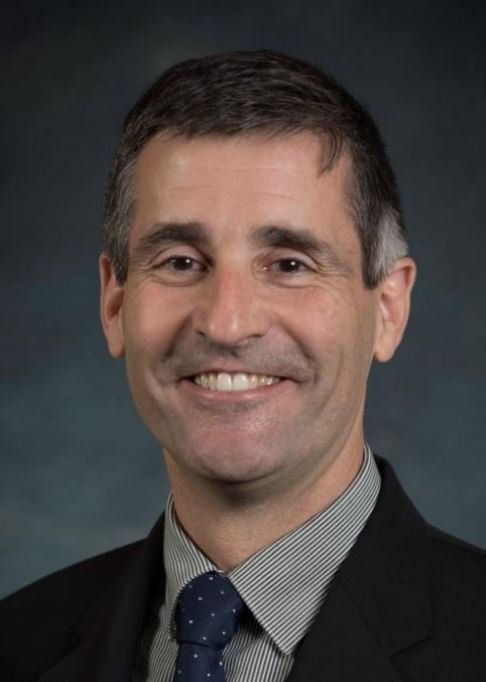A Two-Day Short Course by Dr. Ross Boulanger and Dr. Katerina Ziotopoulou
PM4Sand and PM4Silt: Constitutive Models for Nonlinear Dynamic Analysis
Executive Hotel and Conference Center: 4201 Lougheed Highway, Burnaby, BC V5C 3Y6
April 18-19, 2024
The VGS will be hosting a two-day short course on Thursday and Friday, April 18 -19, 2024 on “PM4Sand and PM4Silt: Constitutive Models for Nonlinear Dynamic Analysis” by Dr. Ross Boulanger and Dr. Katerina Ziotopoulou.
Breakfast and lunch will be provided, as will snacks and beverages during the morning and afternoon breaks.
Space is limited to 50 registrants. Click here to register. Registration details are as follows:
| Registration Type | Early Bird (before March 2, 2024) | Regular |
| General Registrant | $750 | $850 |
| Student | $450 | $525 |
For additional information or questions, please contact Tyler Southam (tyler.southham@tetratech.com).
Course Overview
This two-day short course covers the constitutive models PM4Sand and PM4Silt and their use in nonlinear dynamic analyses of liquefaction and cyclic softening during earthquakes. The PM4Sand and PM4Silt models are stress ratio-controlled,critical state-compatible, bounding surface plasticity constitutive models developed by Boulanger and Ziotopoulou over the past decade for earthquake engineering applications. They are implemented as user-defined dynamic link libraries for use in Itasca's FLAC2D program.
The topics to be covered include: background and formulation of PM4Sand and PM4Silt; calibration procedures for engineering applications (single element simulations of various loading paths; capabilities and limitations) for both models; hands-on calibration exercises; challenges and lessons learnt from certain calibrations; and a general discussion on the need for the element-level calibrations and system-level analyses to be informing each other.
This course is geared toward participants already having some level of familiarity with nonlinear dynamic analyses, nonlinear constitutive models, soil liquefaction and cyclic softening during earthquakes, and the computer program FLAC/FLAC2D. Coverage of each topic will include a review of background information and underlying fundamentals, but the focus will be more on details and procedures important to using these numerical models in practice. Participants are expected to bring a laptop computer loaded with FLAC2D 9.0 (a trial version will be sufficient), the PM4Sand Version 3.3 and PM4Silt Version 2.1 dynamic link libraries, and the calibration drivers for PM4Sand (pm4sand.engr.ucdavis.edu/) and PM4Silt (pm4silt.engr.ucdavis.edu/) so they can participate in the example exercises. Users of FLAC8.1 will be able to follow along, but the examples will be presented using the newer FLAC2D. Participants will be provided with additional background materials for review prior to the course.
Day 1 Schedule: PM4Sand
| 7:15 AM | Breakfast and Coffee |
| 8:00 AM | Welcome and introduction |
| 8:15 AM | Constituve model calibration and NDAs: from element to system and back (Part 1) |
| 8:30 AM | PM4Sand: Background and formulation |
| 9:30 AM | Break |
| 10:00 AM | PM4Sand: Calibration for practice and hands-on exercises (Part 1) |
| 12:00 PM | Break for lunch |
| 1:00 PM | PM4Sand: Calibration for practice and hands-on exercises (Part 2) |
| 2:30 PM | Break |
| 3:00 PM | PM4Sand: Calibration challenges and lessons |
| 4:30 PM | Discussion |
| 5:00 PM | Adjourn |
Day 2 Schedule: PM4Silt
| 7:15 AM | Breakfast and Coffee |
| 8:00 AM | Welcome back |
| 8:15 AM | PM4Silt: Background and formulation |
| 9:15 AM | PM4Silt: Calibration for practice and hands-on exercises (Part 1) |
| 9:45 AM | Break |
| 10:00 AM | PM4Silt: Calibration for practice and hands-on exercises (Part 2) |
| 12:00 PM | Working lunch on automation with python |
| 1:00 PM | PM4SSilt: Calibration for practice and hands-on exercises (Part 3) |
| 1:30 PM | PM4Silt: Calibration challenges and lessons |
| 3:00 PM | Break |
| 3:30 PM | Constitutive model calibration and NDAs: from element to system and back (Part 2) |
| 4:15 PM | Discussion |
| 5:00 PM | Adjourn |
Presenters:
Ross W. Boulanger
Ross W. Boulanger is an independent consulting civil engineer and a Distinguished Professor Emeritus in the Department of Civil and Environmental Engineering at the University of California, Davis. He received his BASc degree in Civil Engineering from the University of British Columbia in 1986, followed by his MS and PhD degrees in Civil Engineering from the University of California at Berkeley. His tenure at UC Davis from 1992 through 2023 included 14 years as Director of the Center for Geotechnical Modeling. His over 300 publications are primarily related to liquefaction and its remediation, seismic performance of dams and levees, and seismic soil-structure interaction. His consulting roles involve serving on technical review boards for a range of dam, tunnel, and infrastructure projects. His honors include the Casagrande Award, Huber Prize, Norman Medal, and Peck Award from ASCE, the Ishihara Lecture from the ISSMGE, and election to the US National Academy of Engineering.
Katerina Ziotopoulou
Katerina Ziotopoulou is an Associate Professor in Civil and Environmental Engineering at the University of California, Davis and a licensed Professional Engineer in California. She received her 5-year diploma degree in Civil Engineering from the National Technical University of Athens (NTUA), Greece and her MS and PhD degrees in Civil Engineering from UC Davis. She specializes in geotechnical earthquake engineering with an emphasis on the investigation of ground failure due to earthquake-induced liquefaction and cyclic softening, and its mitigation. She combines the development of advanced numerical tools with multiscale experimental methods and data analytics, the establishment of validation protocols, and the upscaling to system-level analyses of case histories. She is passionate about teaching and mentoring undergraduate and graduate students. She has been honored with the Casagrande Professional Development Award, the National Science Foundation CAREER Award, and the ISSMGE Young Researcher Award.


